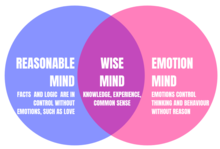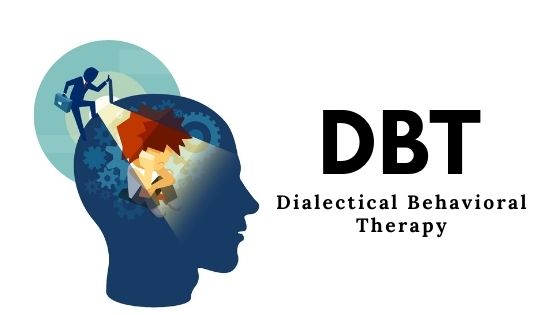DBT London: Where Hope and Recovery Intersect for Lasting Change
DBT London: Where Hope and Recovery Intersect for Lasting Change
Blog Article
Empowering People With Efficient Dialectical Practices Therapy (DBT) Providers: Structure Stronger Mental Health Foundations
In the realm of mental wellness and well-being, the importance of equipping people through efficient Dialectical Behaviour Therapy (DBT) solutions can not be overemphasized. By concentrating on the core principles of DBT, such as boosting psychological regulation skills, improving interpersonal effectiveness, building distress tolerance techniques, and cultivating mindfulness practices, individuals can start a journey towards building stronger psychological wellness structures. The impact of DBT surpasses mere symptom management; it offers a holistic approach that equips individuals with the devices required to browse life's difficulties with durability and self-awareness. As we explore the transformative potential of DBT in empowering people to lead even more satisfying lives, the path to enhanced mental wellness and health comes to be an engaging narrative that beckons expedition.
Recognizing the Core Principles of DBT


One core concept of DBT is validation. Therapists utilizing DBT recognize the patient's feelings and habits as valid reactions to their setting. This validation assists build a solid healing partnership and motivates people to function in the direction of modification. One more fundamental facet is dialectics, which teaches people to see situations from numerous point of views and find the synthesis in between contradictory thoughts or feelings.
Moreover, the concept of dialectical abstaining is central to DBT. This concept urges people to abstain from self-destructive habits while likewise approving themselves. By recognizing and incorporating these core principles, therapists can properly apply DBT techniques and support individuals in their trip in the direction of emotional guideline and psychological health.
Enhancing Psychological Law Skills
Developing proficiency in managing emotions is a fundamental aspect of fostering psychological well-being and social performance - DBT London. Enhancing psychological law abilities is a core part of Dialectical Practices Treatment (DBT) that furnishes individuals with the tools to navigate extreme feelings in a healthy and balanced and positive way. With DBT, individuals learn to recognize, recognize, and control their emotions, resulting in improved psychological wellness results
DBT emphasizes the importance of mindfulness, which entails existing in the moment without judgment. This practice permits people to observe their emotions without coming to be bewildered by them, enhancing their ability to react efficiently as opposed to respond impulsively. By growing mindfulness, individuals can develop a better sense of self-awareness and emotional control.
In addition, DBT shows functional skills such as distress tolerance and feeling policy strategies to aid people handle challenging feelings. By learning these abilities, individuals can lower impulsive habits, improve decision-making, and reinforce their partnerships with others. Inevitably, improving psychological regulation skills via DBT encourages individuals to lead even more meeting and balanced lives.

Improving Interpersonal Effectiveness
Having established a solid foundation in psychological guideline abilities within the structure of Dialectical Behaviour Therapy (DBT), the focus now shifts in the direction of enhancing interpersonal performance. Improving interpersonal effectiveness is a critical component of DBT as it outfits individuals with the required skills to browse social interactions, connect efficiently, set borders, and build healthier relationships.
In DBT, interpersonal performance abilities are taught through modules that concentrate on areas such as assertiveness, reliable communication, and social problem-solving. By finding out these skills, people can enhance their ability to express browse around this web-site their demands and wishes, preserve self-worth, and construct stronger connections with others.
Practicing mindfulness is an indispensable part of boosting interpersonal performance within the DBT framework. Mindfulness enables people to be present in their communications, pay attention proactively, and respond thoughtfully rather than respond impulsively. By integrating mindfulness right into their everyday lives, individuals can grow better self-awareness and emotional regulation, which are essential for effective social communications.
Structure Distress Resistance Methods
Checking out effective approaches for handling emotional distress is vital for individuals looking for to boost their coping skills and resilience. Structure distress tolerance methods is a vital facet of Dialectical Behaviour Treatment (DBT) that encourages people to browse challenging emotions without becoming overwhelmed.
Furthermore, mindfulness techniques play a substantial role in structure distress tolerance. Mindfulness urges individuals to stay existing in the minute without judgment, permitting them to observe their thoughts and feelings without responding impulsively. This awareness enables individuals to endure distress better and create a better feeling of control over their responses.
In addition more helpful hints to these methods, creating a tailored distress tolerance strategy with the advice of an experienced therapist can supply people with a tailored approach to handling emotional distress - DBT London. By integrating these methods right into every day life, individuals can enhance their psychological health foundations and boost their overall wellness

Cultivating Mindfulness Practices
To strengthen their distress resistance strategies better, people can concentrate on cultivating mindfulness methods as a corresponding strategy within the framework of Dialectical Behavior Treatment (DBT) Mindfulness, an essential part of DBT, involves focusing on the existing minute without judgment. By fostering mindfulness, people can enhance their understanding of ideas, emotions, and bodily sensations, promoting a deeper understanding of themselves and their experiences.
Mindfulness practices in DBT consist of techniques such as mindful breathing, body scans, and observing thoughts without attachment. These methods motivate individuals to develop a non-reactive stance in the direction of their inner experiences, permitting them to react to tough scenarios with better quality and calmness. By incorporating mindfulness right into daily routines, individuals can learn to regulate their emotions better, minimize impulsive actions, and grow a sense of internal tranquility.
Via growing mindfulness methods, individuals undergoing DBT can build a strong foundation for taking care of tension, boosting partnerships, and boosting general well-being. By incorporating mindfulness right into their therapeutic journey, people can establish valuable abilities that equip them to navigate life's obstacles with durability and self-awareness.
Conclusion
In verdict, efficient Dialectical Behaviour Treatment (DBT) services play an important role in encouraging individuals to construct stronger psychological health and wellness website link structures. By comprehending the core concepts of DBT, improving psychological policy abilities, enhancing social efficiency, building distress resistance techniques, and cultivating mindfulness techniques, individuals are outfitted with the needed tools to navigate their feelings, relationships, and obstacles in a more durable and flexible manner. DBT solutions supply a detailed approach to promoting psychological well-being and equipping individuals to lead satisfying lives.
By concentrating on the core concepts of DBT, such as enhancing psychological law skills, enhancing social effectiveness, developing distress resistance techniques, and cultivating mindfulness methods, people can embark on a journey towards structure more powerful psychological health and wellness structures. Enhancing emotional policy skills is a core part of Dialectical Practices Therapy (DBT) that gears up people with the devices to browse extreme feelings in a useful and healthy and balanced fashion.Furthermore, DBT instructs sensible abilities such as distress tolerance and emotion guideline strategies to help individuals manage challenging emotions.To strengthen their distress resistance strategies better, people can concentrate on growing mindfulness practices as a complementary technique within the structure of Dialectical Behavior Therapy (DBT) By comprehending the core concepts of DBT, improving psychological guideline skills, boosting interpersonal efficiency, constructing distress resistance strategies, and growing mindfulness methods, individuals are geared up with the required tools to navigate their feelings, partnerships, and difficulties in a much more adaptive and resilient manner.
Report this page